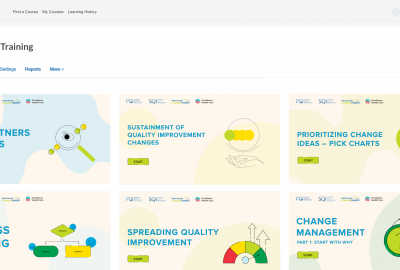
We’ve posted plenty of content on how to be your best self an interview, so now we’ve put together the other side of coin: Ten ways not to answer an interview question.
1. Not Answering the Question
As obvious as it may sound, make sure that you actually answer every question. It can be fine to veer off course a little if the opportunity arises to share a great example, but make sure you bring it back on topic and fully answer the question. If you’re not sure, end your response with, “I hope that covers off what you wanted to know.” Not answering the question can look like you’re avoiding something, or even worse, that you weren’t listening in the first place.
2. Giving Generic or Overly Rehearsed Responses
Practice is important, but don’t overly rehearse to the point that it sounds like you’re auditioning for a high school play. You’ll come across as stiff and fake. Avoid generic responses, ie: “My biggest weakness? Working TOO hard.” as well. You just sound insincere.
3. Not Providing Examples
Examples give your responses life and personality. There will be five other candidates with the same amount of similar experience, so to make yourself stand out you need to be able to provide interesting examples. Don’t just say you developed skills at team leading, tell them about the time you led the organization of the staff Christmas party.
4. Choosing the Wrong Examples, or Coming Back to the Same One
As important as providing examples is, it’s even more important to provide the right one at the right time. You may have a great story to tell about a project you’re really proud of, but wait for the right opening, don’t just awkwardly shoehorn it in anywhere. Also be careful of how often you come back to the same examples. It’s fine if most of your examples come from the same job, especially if you’re just starting out, but try to work in as many different projects as possible, otherwise you look like you’re grasping at straws. Plus, don’t forget you can use examples from classwork and volunteer experience as well.
5. Missing the Opportunity to Demonstrate Your Knowledge fo the Employer
You’ve done your research on the employer… right? Of course you have, so show it off! When answering questions, look for openings to comment on recent projects or issues the company has been involved with. Alternatively, make sure you take advantage of the opportunity to ask questions. Prepare some informed questions about the company.
6. Rushing Through Your Response
Your interview is your chance to shine. It may feel odd to be talking about yourself so much, but that’s what you’re there for. Don’t rush through your answers; speak at a normal speed, take the time to think through what you want to say, and don’t forget to breathe.
7. Giving the Impression That You're Desperate for Any Job
You may very well be very desperate for just about any job, but much like dating, you can’t let it show. Show your passion and desire for the job, but make sure it’s targeted at wanting THIS job, not just any job.
8. Letting the Nerves Get the Best of You
It’s natural to be nervous, and it’s okay if the nerves show, but don’t let them shake your confidence or cause you to forget your talking points. The best defence for nerves is preparation, so arrive full prepared, take a deep breath, smile, and let yourself shine.
9. Undervaluing You Professional Worth
This is especially common with students and new grads. Looking at job descriptions, it can feel like you’re not qualified to do much of anything. Good news, if you’ve been invited in for an interview, you’ve probably already met the minimum requirements, so now you just need to impress with the details. Keep in mind that school work, volunteer experience, and part-time jobs all provide valuable transferable skills.
10. Providing Misleading Information
Don’t lie about your experience or a connection with the company. Making up experience will come back to bite you. Even the CEO of Yahoo got caught. The world is smaller than you think, and you never know what connection your interviewer may have with the company you pretended to work at, or with a former co-worker at the department you “managed.”















